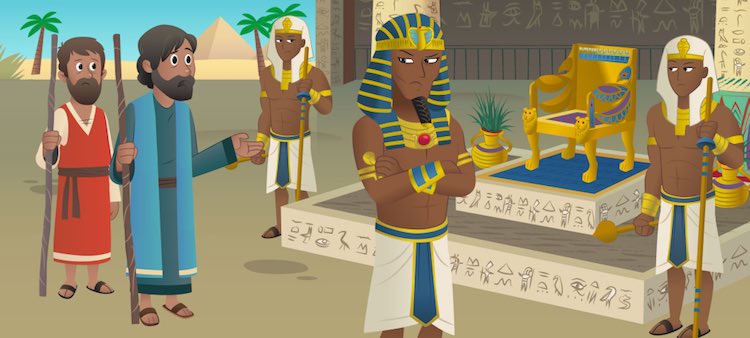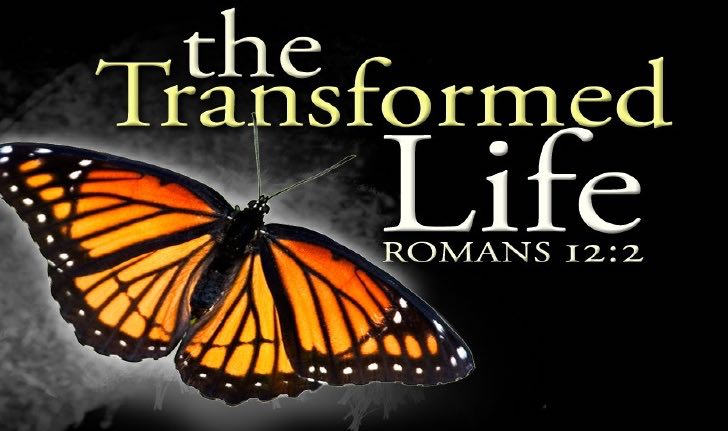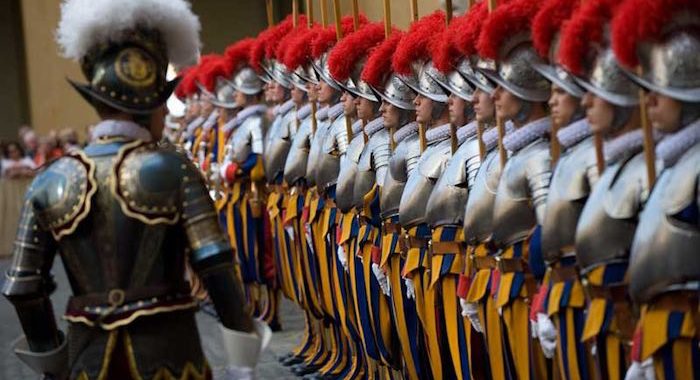This past Friday, January 20, 2017, the people of the United States of America inaugurated a new president. I generally do not follow politics, however, the political process in America this past year has been very unique and the issues at stake have been extremely significant for both America and the world.
As I watched the inauguration ceremony via the internet, I was in awe of the orderly transition of power from one president to the next. President Obama was the President of the United States up until Donald Trump was officially sworn into the office of the presidency under the direction of Supreme Court Chief Justice John Roberts. Within minutes after Trump was sworn into office, the ceremony came to an end and former President Obama left the ceremony and literally flew away by helicopter with his family to the state of Florida.
Allegiance to One
The immediate exit of former President Obama from Washington DC after Donald Trump became president solidified for me the reality that there is only one President of the United States at any given moment in history. There cannot be two rulers of a nation at any given time. If there is more than one ruler than there will be divided loyalty and potential chaos in the nation. There can be allegiance to only one ruler.
It is on this subject of “allegiance” that I will focus the study of this week’s Torah Portion. This week’s Torah Portion is found in Exodus chapters six through nine and contains the Scriptures which describe the first seven signs (or plagues) that God brought upon Pharaoh and the Egyptians. God had told Moses that he should perform all of His signs and wonders before Pharaoh in order to prove to Pharaoh that God was indeed sending Moses with His authority. God also warned Moses that Pharaoh would not listen and that his stubbornness would eventually result in the death of Pharaoh’s own son (Ex. 4:21-23).
God’s ultimate goal in sending Moses back to Egypt was to release the Israelites from the power of Pharaoh in order for them to serve Him instead. God instructed Moses to take the following message to Pharaoh:
Then the LORD said to Moses, “Pharaoh’s heart is stubborn; he refuses to let the people go. Go to Pharaoh in the morning as he is going out to the water, and station yourself to meet him on the bank of the Nile; and you shall take in your hand the staff that was turned into a serpent. You shall say to him, ‘The LORD, the God of the Hebrews, sent me to you, saying, “Let My people go, that they may serve Me in the wilderness. But behold, you have not listened until now.” – Ex. 7:14-16
The LORD sent Moses to Pharaoh with one main message, “Let My people go, that they may serve Me in the wilderness.” We read this message repeated over and over throughout this week’s text (Ex. 7:16. 8:1,20. 9:1,13).

A Change in Allegiance
The message that Moses spoke to Pharaoh was not only for him, it was also for the children of Israel. The children of Israel lived as slaves in Egypt and served Pharaoh for the sake of building his kingdom. God had sent Moses to Pharaoh, the Egyptians, and to the children of Israel to inform everyone that a change of allegiance was about to take place.
The LORD knew that Pharaoh would harden his heart and refuse to let the children of Israel go. God chose to use Pharaoh’s stubborn heart as an opportunity to display his power before Pharaoh, the Egyptians, and all of Israel. The LORD also wanted to teach the Israelites the difference between serving Pharaoh and serving Him. The Israelites had been living in Egypt for four hundred years and this change of allegiance from Pharaoh to Almighty God would seem like an impossibility for them.
Serving Pharaoh
When God first sent Moses to the Israelites, they literally struggled to believe that they could really be set free from serving Pharaoh. We read early on in this week’s Scripture reading how Moses went to the Israelites to inform them of the plan of God to redeem them and bring them out of their bondage, however, they literally could not believe his words: “So Moses spoke thus to the sons of Israel, but they did not listen to Moses on account of their despondency and cruel bondage.” (Ex. 6:9) The words of the LORD through His prophet Moses seemed impossible for the people to believe because of their extreme conditions.
We read in the above verse that the reason that the Israelites could not believe the words of Moses was because of their “despondency and cruel bondage.” This phrase in Hebrew reads as follows, “מקוצר רוח ומעבודה קשה” – “mi’kotzer ruach oo’me’avodah kasha,” which is literally translated “from shortness of spirit and from hard service.” The years of hard service had stolen away the spirit of the people.
The LORD’s message to Pharaoh regarding the Israelites, “Let My people go, that they may serve Me in the wilderness” (Ex. 7:16), is phrased in such a way to let Pharaoh clearly know that the children of Israel would stop serving him and would instead serve the LORD. This was a challenge to Pharaoh’s rule as King of Egypt and it was a declaration of a change in allegiance from Pharaoh to the LORD.
The word “serve” which is used in the LORD’s message to Pharaoh is the same exact word in the Hebrew which is used throughout these chapters to describe the service or labor of the Israelites to Pharaoh, however, the meaning took on a different nuance in reference to serving the LORD. The infinitive form of the English “to serve” in Hebrew is “לעבוד” – “la’avod” and generally means “to work” or “to serve,” however, it also means “to worship.” The LORD was taking the Israelites out of their cruel labor and service to Pharaoh in order to set them free to serve Him through worship.
From Slavery to Worship
This literal shift from serving Pharaoh as slaves to serving the LORD through worship is repeated throughout the narrative of the Exodus as we read when the LORD first instructed Moses regarding His plan to bring the children of Israel out of Egypt (Ex. 3:17-18) and continues in this week’s reading in a conversation between Pharaoh and Moses:
Pharaoh called for Moses and Aaron and said, “Go, sacrifice to your God within the land.” But Moses said, “It is not right to do so, for we will sacrifice to the LORD our God what is an abomination to the Egyptians. If we sacrifice what is an abomination to the Egyptians before their eyes, will they not then stone us? We must go a three days’ journey into the wilderness and sacrifice to the LORD our God as He commands us.” – Ex. 8:25-27
The LORD was calling the children of Israel out of slavery to Pharaoh and into His service. Pharaoh wanted the children of Israel to compromise their allegiance to the LORD by sacrificing to the LORD in Egypt but remaining in service to him, however, Moses declared that this was impossible.
The LORD was illustrating through the children of Israel that the transfer of allegiance from one king to another must be uncompromising. The children of Israel were being called out by the God of the universe to be His people and to serve Him alone. God was asking for their allegiance in serving Him which would be demonstrated through the offering of sacrifices to Him as He would require from them. The Israelite’s service to Pharaoh needed to end in order to give their full allegiance to their new King.

Worship the King of Kings
The situation of the nation of Israel coming out of Egypt, the land of slavery, and entering into the Promised Land under the ultimate authority of their new King, the LORD, is a unique illustration that shows us what it means to be the people of God and what it looks like to change our allegiance from the ruler of this world to the King of Kings. We all live in nations which are governed by rulers and we are to respect the rulers under whom we live as much as it is possible, however, we who believe in God and His Messiah must always remember that our ultimate allegiance is to the King of Kings.
Although we live on this earth and are surrounded by a world system that often tries to make us conform to the ways of the world, we must live in manner that is pleasing to the God of heaven and earth, as He is the rightful King. This week’s reading from the prophets is found in Isaiah 66 and reminds us that the earth belongs to the LORD and He will reign on this earth one day:
Thus says the LORD, “Heaven is My throne and the earth is My footstool. Where then is a house you could build for Me? And where is a place that I may rest? “For My hand made all these things, thus all these things came into being,” declares the LORD. “But to this one I will look, to him who is humble and contrite of spirit, and who trembles at My word.” – Isaiah 66:1-2
“And it shall be from new moon to new moon and from sabbath to sabbath, all mankind will come to bow down before Me,” says the LORD. – Isaiah 66:23
The LORD is already King and reigns from heaven but there is a day coming when He will reign on this earth and in that day all will bow in worship to Him. We are also reminded of this truth in the book of Psalms:
All nations whom You have made shall come and worship before You, O Lord, and they shall glorify Your name. For You are great and do wondrous deeds; You alone are God. – Psalm 86:9-10
There is only one God and one day all nations will worship Him!

Living Sacrifices
Just as the Israelites were called out of Egypt to serve the LORD through worship by offering sacrifices to Him, so are we in a similar manner called to be separate from this world and to worship our LORD through a life of total sacrifice:
Therefore I urge you, brethren, by the mercies of God, to present your bodies a living and holy sacrifice, acceptable to God, which is your spiritual service of worship. And do not be conformed to this world, but be transformed by the renewing of your mind, so that you may prove what the will of God is, that which is good and acceptable and perfect. – Romans 12:1-2
Yeshua has fulfilled the blood sacrifice for all of us who believe in Him and in view of His sacrifice we are to worship the LORD with our lives.
Allegiance to The King
In a spiritual sense, we can only give our allegiance to one ruler. If we claim that Yeshua is our King but still live in conformity to this world, we will live in duplicity and there will only be chaos in our lives. God is calling each of us, through Yeshua the Messiah, to serve Him alone. It is our right and duty to serve the King of Kings with complete allegiance!
Shabbat Shalom,
If you enjoyed reading this article, share it today with friends! We also invite you to sign up for our weekly Torah Portion commentary on the sidebar to the right.
Help keep our weekly commentaries free and available to all. Click here to donate today:
Torah Portion: Ex. 6:2 – Ex. 9:35
Haftara: Isaiah 66:1-24
Return to Torah Portion Homepage
Copyright Jewels of Judaism. All rights reserved 2017



Well written
Dear Daniel,
Thank you for explaining that la’avod in Exodus 7:16 means that the israelite’s service/work was to worship Elohim. I recall learning in Bible school several years ago that the work that God intended for man to do in the Garden of Eden was to worship Him (Genesis 2:15). Unfortunately, virtually no English translation of the Bible translate l’avod. So your explanation, along with a search in the Orthodox Jewish Bible (which is available for free at Biblegateway.com; see scriptures below) finally clarified and confirmed for me that l’avod is worship:
Bereshis 2:15 And Hashem Elohim took the adam and put him in the Gan Eden la’avod to till, to work it and to be shomer over it.
While I was in the OJB, I also looked up Roman 12:1 and, as I had suspected from all of the aforementioned,the believer’s spiritual service of worship is referred to as “avodas” (as in, l’avod):
Kehillah in Rome 12:1 I appeal to you, therefore, Achim b’Moshiach, through the rachamei Hashem mercies of G-d, to present your geviyah , all of your being as a korban chai living sacrifice, kadosh holy and acceptable to Hashem , which is your spiritual avodas kodesh service.
As you sojourn throughout Australia, may the LORD bless you and keep. May He mightily use you there to bear much fruit, by His grace and for His glory.
Much Shalom,
Sal:-)
Very good, Daniel. God bless you as you travel to Australia.